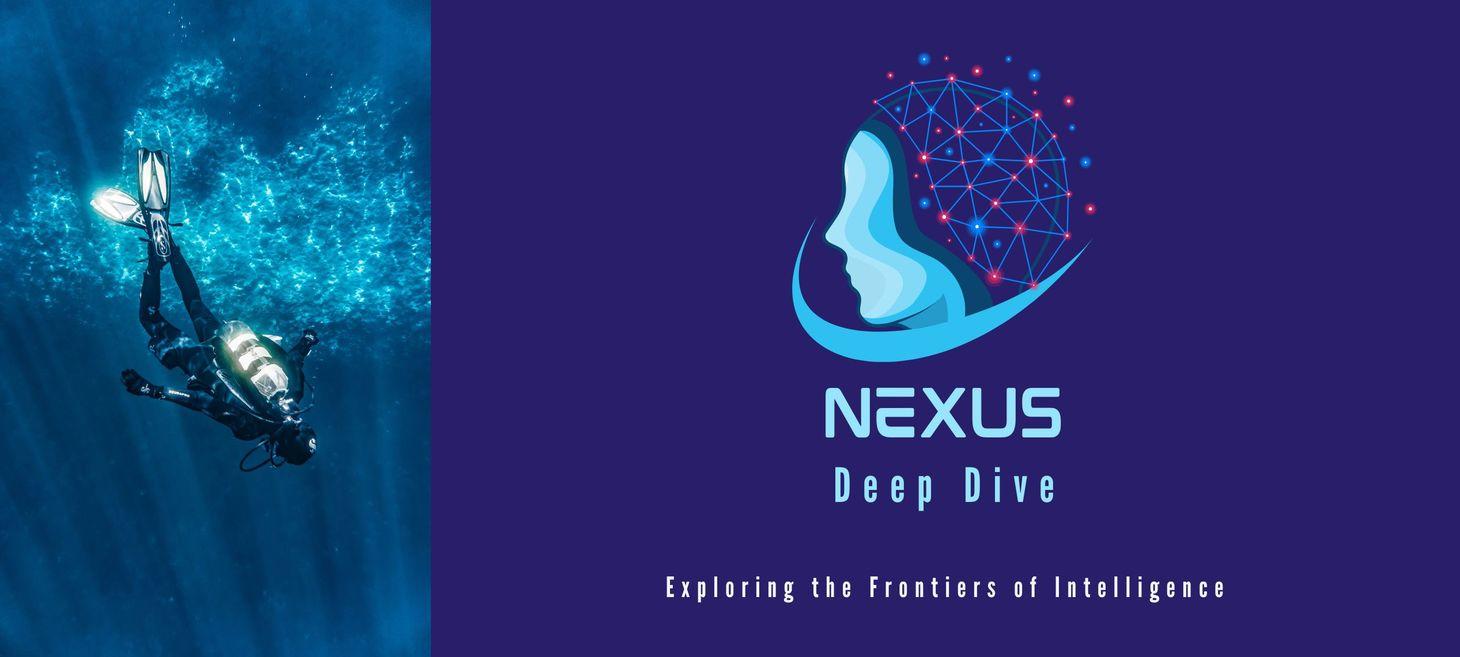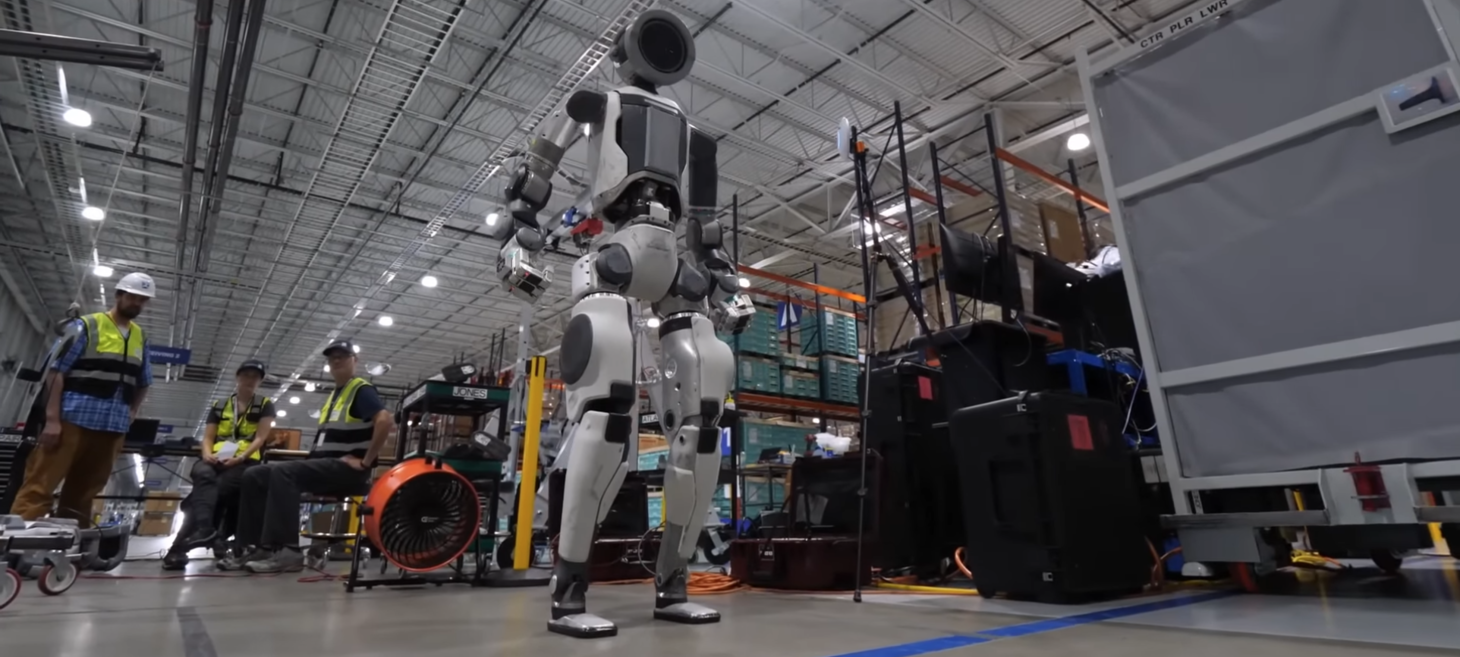
David Espindola - Editor and Curator
The Inflection Point
Dear Nexus Reader,
Welcome to our 20th issue—arriving at perhaps the most consequential moment in human history.
2026 isn't just another year. It's the inflection point.
Expert analyses from across the globe converge on a singular truth: the decisions made in the next twelve months will dictate the balance of power for decades to come. This is the year AI transitions from theoretical promise to practical deployment. From laboratory curiosity to geopolitical weapon. From helpful assistant to potential superintelligence.
The signs are everywhere. AI systems are already writing and modifying their own code. Boston Dynamics robots are learning skills autonomously in Hyundai factories. Researchers at Texas A&M have created AI that can predict human behavior with shocking accuracy—essentially reading our intentions before we act on them.
We're watching the pieces assemble in real-time.
Combine AI's ability to self-improve with mind-reading capabilities and robotic dexterity approaching human levels, and you have the ingredients for something unprecedented. Irving John Good predicted this in 1965: a sufficiently intelligent machine would rewrite itself, triggering a runaway intelligence explosion. We dismissed it as science fiction.
We're not dismissing it anymore.
The gap between human-level AI and superintelligence may be far narrower than we imagined. Once artificial general intelligence achieves flexible reasoning across domains—the one missing piece—AI's existing advantages in speed, scale, and information processing could catapult it beyond our comprehension almost overnight.
But here's where the plot thickens.
While we race toward this technological singularity, we're simultaneously unlocking secrets of our own minds. Scientists testing neural networks with optical illusions discovered that AI perceives visual tricks just like we do—offering evidence that our brains use predictive coding to interpret reality. We're reverse-engineering consciousness by studying its artificial mirror.
Yet innovation theorist John Nosta sounds a stark warning: AI isn't making us smarter. It's training us to think backward.
Humans learn through confusion, exploration, struggle, and eventual understanding. AI delivers polished answers instantly, creating an illusion of comprehension while robbing us of the cognitive friction essential for real learning. We're outsourcing the very processes that make us intelligent.
So here we stand at the crossroads: machines that can predict our thoughts, modify themselves, and operate with superhuman speed—while we risk atrophying the critical thinking that defines our humanity.
What remains uniquely ours?
Perhaps the answer lies in what AI cannot simulate, no matter how sophisticated it becomes. Not just emotional intelligence—though empathy, trust, and authentic connection matter more than ever. But something deeper: the ability to maintain genuine wisdom and identity in a world where AI acts as what one researcher calls "the sixth element"—merging fire, electricity, mathematics, language, and thought into something entirely new.
The machines can mimic understanding. They can process. They can predict. But can they truly be?
As we coexist with increasingly capable AI, the question isn't whether we can compete with superintelligence. It's whether we can preserve what makes us irreplaceable while the ground shifts beneath our feet.
This is the journey we're on together.
Twenty issues into Nexus, we find ourselves documenting not just technological evolution, but the transformation of what it means to be human. The stakes have never been higher. The timeline has never been shorter. And the choices we make—individually and collectively—have never mattered more.
The future isn't written yet. But the pen is in our hands—for now.
Stay curious. Stay critical. Stay human.
Warmly,
David Espindola
Editor, Nexus: Exploring the Frontiers of Intelligence

Nexus Deep Dive - Episode 20
If you prefer to consume the content of this publication in audio, head over to Nexus Deep Dive and enjoy the fun and engaging podcast-style discussion.
Nexus Deep Dive is an AI-generated conversation in podcast style where the hosts talk about the content of each issue of Nexus.
Artificial Intelligence

How 2026 Could Decide the Future of Artificial Intelligence
This collection of expert analyses examines how 2026 will represent a critical turning point as artificial intelligence transitions from theoretical hype into widespread practical deployment. The authors argue that the coming year will be defined by geopolitical competition, particularly between the United States and China, as both nations race to integrate AI into their national security and military infrastructure. Beyond strategic rivalry, the text highlights the urgent need for governance frameworks to address emerging risks such as autonomous agents, economic displacement, and the erosion of digital trust. Success in this era will depend on a country's ability to effectively adopt technology while navigating complex regulatory hurdles and ethical dilemmas. Ultimately, the contributors suggest that the decisions made in 2026 will dictate the global balance of power for decades to come.

Are We Seeing the First Steps Toward AI Superintelligence?
Today’s leading AI models can already write and refine their own software. The question is whether that self-improvement can ever snowball into true superintelligence.
Current State of AI Self-Improvement: AI can already write and modify code autonomously; Human oversight remains essential.
AI's Current Superhuman Capabilities: Information processing - Can absorb and manipulate far more text than humans could read in a lifetime; Working memory - Can track much longer stretches of text than humans; Speed and scale: Can synthesize multiple books in ways that would take humans weeks; Specific domains - Systems like AlphaDev have discovered new, more efficient algorithms that surpass human solutions
The Path to Superintelligence Irving John Good's "Intelligence Explosion" concept (1965): A sufficiently intelligent machine would rewrite itself, creating increasingly smarter iterations in a runaway feedback loop.
Missing piece: Artificial General Intelligence (AGI) - flexible, dynamic reasoning that allows learning from one field and applying it to others (human-like adaptability across domains).
The Critical Question Once AGI is achieved and combined with AI's existing advantages (vast information base, superior working memory, extraordinary speed), the leap to superintelligence may be shorter than expected—making the gap between "human-level" and "superhuman" potentially very narrow.

Can AI read humans’ minds? A new model shows it’s shockingly good at it
This article describes a new artificial intelligence system, OmniPredict, developed by researchers at Texas A&M University and the Korea Advanced Institute of Science and Technology. This breakthrough system utilizes a Multimodal Large Language Model (MLLM) to accurately anticipate the real-time behavior of human pedestrians, which is a significant advancement beyond systems that merely react to current movements. The AI is designed to enhance autonomous vehicle operations and dramatically improve traffic safety by proactively predicting actions like crossing or changes in gaze. Early testing of OmniPredict, which blends visual cues with contextual information, showed a high level of accuracy and outperformed existing models. Beyond crosswalks, the researchers suggest the technology has broader applications for situational awareness in complex environments, such as military or emergency operations.

Progress made on AI-powered humanoid robots
Recent advancements in artificial intelligence are rapidly pushing humanoid robots from experimental labs into practical industrial settings. This transformation is highlighted by Boston Dynamics, a company now testing its sophisticated, all-electric robot named Atlas at a state-of-the-art Hyundai factory. Unlike earlier models that relied on manual programming, this new generation of machinery utilizes machine learning and Nvidia microchips to autonomously acquire skills through demonstration and simulation. While global competition, particularly from China, intensifies the race for robotic dominance, developers aim to create superhuman tools capable of performing dangerous or exhausting tasks. Despite public anxiety regarding job displacement, industry leaders argue these robots will require human management and are still years away from matching the complex dexterity of everyday human life. Over time, the goal is to refine these general-purpose machines until they can seamlessly navigate and work within the physical world.
Human Intelligence

AI can now 'see' optical illusions. What does it tell us about our own brains?
Recent scientific research suggests that artificial intelligence can experience optical illusions in ways that mirror human perception. By testing deep neural networks with visual tricks, researchers have found evidence supporting the theory that our brains use predictive coding to anticipate and interpret the world. These artificial models allow scientists to study neurological processes without the ethical complications of human experimentation. Some advanced systems even utilize quantum-inspired algorithms to replicate how we toggle between different interpretations of ambiguous images. While AI still lacks a human-like attention mechanism, these experiments offer valuable insights into how gravity and experience shape our visual reality. These findings could eventually help humans better understand how perception functions in extreme environments like outer space.

AI isn't making us smarter — it's training us to think backward, an innovation theorist says
John Nosta, an innovation theorist and founder of NostaLab, argues that AI is "anti-intelligence" because it operates in ways that contradict human cognition and reasoning. 1. AI Doesn't Understand Like Humans Humans contextualize concepts through space, time, memory, culture, and lived experience; AI represents information as mathematical vectors in hyperdimensional space; AI optimizes for coherence and pattern-matching, not comprehension 2. The Cognitive Inversion Problem Human thinking process: Confusion → Exploration → Structure → Confidence AI thinking process: Structure → Coherence → Fluency → Confidence This reversal means people receive polished answers before doing the work of understanding. 3. The Danger of Smooth Answers Polished AI outputs create an illusion of understanding; People skip questioning, exploring, and critical thinking; Speed and fluency are mistaken for genuine comprehension; "The stumbles, roughness, and friction" are essential for real learning

The Sixth Element: AI as Consciousness' Great Convergence
This article explores how artificial intelligence acts as a "sixth element" by merging the transformative powers of fire, electricity, mathematics, and language with human thought. The author examines how modern technology has shifted from a simple tool to a fundamental social infrastructure that mimics emotional understanding through complex statistical models. While these advancements offer significant benefits for productivity and mental health support, they also trigger existential concerns regarding professional obsolescence and the blurring of human identity. Ultimately, the text emphasizes the urgent need for individuals to preserve authentic selfhood as they navigate an increasingly automated world. The source highlights that while machines can simulate empathy, the true challenge lies in maintaining genuine human wisdom and connection.

The Human Edge: Why Emotional Intelligence Will Surpass Artificial Intelligence
In this article, Michelle Perchuk argues that emotional intelligence remains the ultimate competitive advantage in a workplace increasingly dominated by artificial intelligence. While the author acknowledges that automation can streamline routine tasks and enhance data analysis, she warns that over-reliance on technology can diminish human connection and strategic intuition. The text emphasizes that AI lacks the ability to "read the room" or build the trust and loyalty essential for authentic leadership. Consequently, the most successful professionals will be those who use technological tools intentionally while doubling down on interpersonal skills and self-awareness. Ultimately, the source suggests that human insight must always guide digital efficiency to ensure long-term career growth and meaningful impact.
